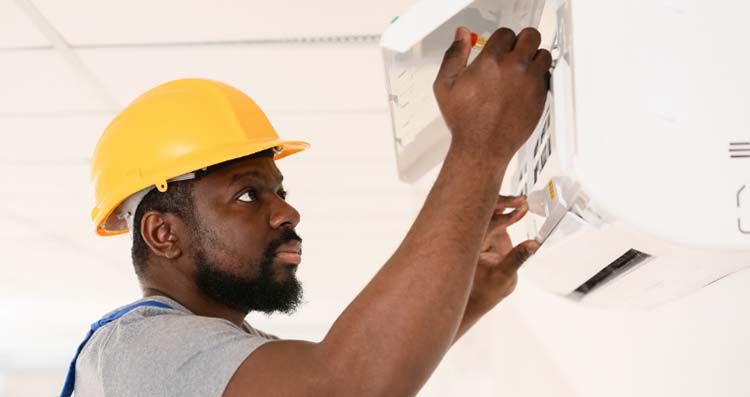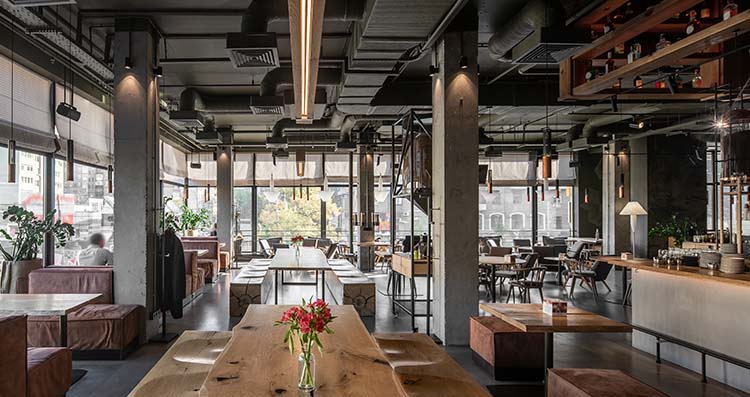New ventilation law takes effect for publicly accessible enclosed spaces
Good air quality is crucial to prevent the spread of viruses and exposure to other pollutants. A new law on indoor air quality in publicly accessible enclosed spaces came into effect on 10 December 2022. This is how the government wants to safeguard Belgium against future pandemics.
Good air quality is important for general health: with effective ventilation and air purification, pollutants - such as fine dust - do not remain suspended in the air, and viruses have a harder time finding their way to a new carrier. Corona, flu or colds strike to a lesser extent, making us stronger in the battle against absenteeism, overcrowded hospitals or potential lockdowns.
The ventilation law has several objectives:
- Establish indicative and non-binding reference levels for indoor air quality in publicly accessible enclosed spaces.
- Encourage operators of publicly accessible enclosed spaces such as hotels, restaurants, cafés, cinemas, museums and gyms to conduct a risk analysis and draw up an action plan.
- Develop a new certification and labelling system for air quality.
- Create an indoor air quality platform to improve knowledge about it, support work to improve and prevent risk situations, and formulate policy recommendations at national and international levels.
The objectives will be further elaborated in ministerial decrees in the coming months.

What does the new ventilation law entail?
The ventilation law provides a legal framework for air quality in all publicly accessible spaces such as hotels, restaurants, cafés, cinemas, museums and gyms. The law will come into effect in 2022, but it will not impose any specific obligations for the first 12 months. The government wants to give all concerned organisations a chance to prepare properly.
Every enclosed space that is publicly accessible must use a CO2 meter, which measures the air quality in the space, as of 10 December 2023. Operators are also required to conduct a risk analysis. If the closed space does not meet the new reference levels, the operator must draw up an action plan to improve the air quality.
Reference levels
In the new ventilation law, the government sets two reference levels for good air quality: level A and level B. Both levels are indicative and non-binding. They are the values every operator should strive for when investing in an action plan to optimise the air quality.
Reference level A
Reference level A states that the space has good air quality if it meets at least one of these conditions:
- The CO2 concentration is less than 900 ppm.
- The ventilation or purification flow rate is at least 40 m3/hr per person present, of which at least 25 m3/hr per person present is fresh outside air.
Reference level B
Reference level B states that the air quality is adequate if it meets one or both these conditions:
- The CO2 concentration is lower than 1200 ppm.
- The ventilation flow rate is at least 25 m3/hr per person present.

Additional measures as of 2025
The new certification and labelling system comes into effect on 1 January 2025. Operators must then apply for certification and hang up the resulting air quality label to inform customers of the air quality in their spaces. The government will track the status in publicly accessible spaces through a database, where the government collects all the labels. This will allow the government to act quickly should a new pandemic break out in the future.
After obtaining a quality label, operators must continue to operate with the same or at least equivalent appliances to maintain the air quality mentioned on their label.
Improve the air quality in your organisation
Good air quality is essential for workers’ health. You can map out the climate situation in your organisation with a focused risk analysis.
Our experts will be happy to help you with this. You are welcome to contact us.